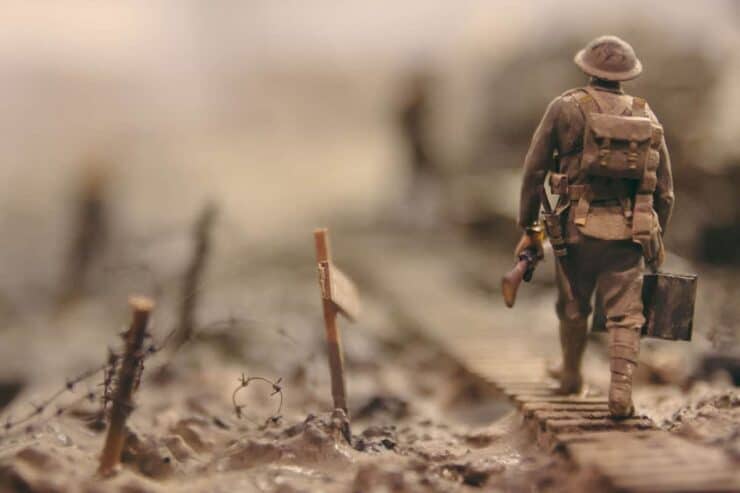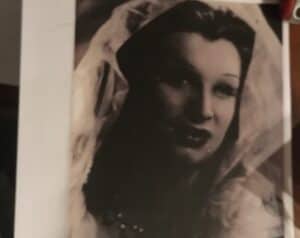
My Father, Bill Dunstan, was a Canadian World War II Veteran. I can’t claim to know the full story, but I do know a little about his unique brand of service and support to the troops.
At the outbreak of War in 1939, thousands of young men joined the army and travelled overseas. They were homesick, they missed their moms, wives and girlfriends. My Dad’s job was to provide a little slice of home. How did this come about? Private Bill Dunstan was a small, slight young man who could read music and sing falsetto. In an age when women did not go to the front line; he was assigned to the Tin Hats, a soldier-led entertainment unit. Trixie was born!

Yes, indeed, my Dad spent the war in drag! Embarrassing? Not so much. Cross dressing had a long tradition in Vaudeville and English pantomime. It was an accepted part of Trench Culture in the First World War and “commanders recognized the morale benefits of entertainment for their civilian-soldiers”. This was a tradition that carried over to part of the Second World War. As Entertainment Units were built from the existing ranks. Bill was simply assigned this role. It was just a job, but an important one. Entertaining the troops wasn’t a free ride or a stunt. It was serious business. The Tin Hats, a 13-member unit with actors, props and musicians travelled along with the combat troops, slogging through mud, eating standard rations, and surviving dangerous conditions. Trixie was really just “ one of the boys”, until she appeared on stage.
Understanding what the soldiers needed was a big part of the Tin Hats’ approach. The soldiers wanted to hear the old songs. They wanted to laugh; and most of all, they craved comfort and glamour. The Tin Hats delivered. The frequent shows featured songs that everyone could sing at the time: It’s a Long Way to Tipperary, Vera Lynn’s The White Cliffs of Dover, My Grandfather’s Clock and A Capital Ship. Antics and general wackiness were part and parcel of the shows with such numbers as I love Mountain Music and the truly demented story of an Irish Nabob in I’ve got Rings on My Fingers. Trixie, however, represented the ideal woman. She portrayed innocence with songs such as Ma, He’s’s Making Eye’s at Me and Apple Blossom Time. She must have done a good job. My Dad admitted to receiving at least two marriage proposals.
For my father and the rest of the Tin Hats, The Show Must Go On, was not just a saying. They would not have dreamed letting down their soldier audience. In Italy, deep into fierce fighting, the show did go on. In one show, my father continued singing and dancing in a grass skirt after the gun on the stage roof began to fire. He remembers only that his rhythm got hopelessly entangled with that of the “ack, ack, ack” of the guns.
Adapting to changing tastes and circumstances, Trixie retired shortly before the end of the war. As service women grew in numbers, mixed Entertainment Units became the norm. Private Bill Dunstan, however continued to entertain troops until his return to Canada.
A different type of client service, indeed!